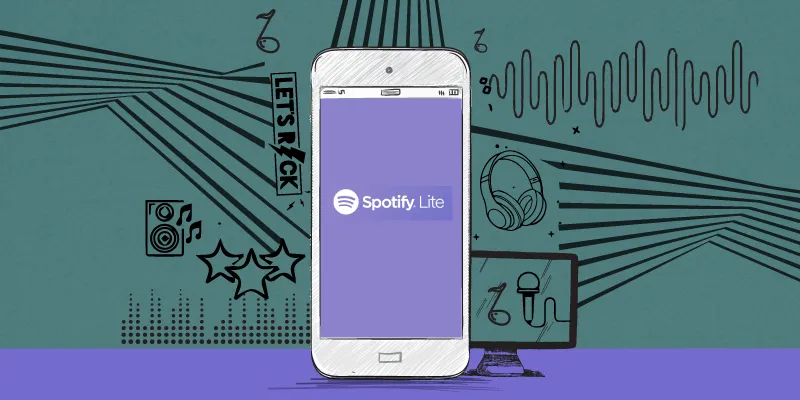[App Fridays] Spotify’s new ‘lite’ app packs a punch, and here's why it works for Indian users
Spotify Lite is an Android-only app that launched in India in July. Nearly 90 percent of the core app’s features have been packed into Lite, which works fine on slow networks too.
Following in the footsteps of several consumer internet companies globally, music-streaming giant Spotify has developed a ‘lite’ version of its app.
After being in beta for a while, Spotify Lite hit app stores in July. It is less than 9 MB in size compared to the core app, which is about 30 MB. Lite is available in 36 markets across Asia, Latin America, Middle East, and Africa.
The app has recorded over a million downloads on Google Play Store in three months. It is rated 4.4 out of 5, and is compatible with devices running Android 4.3 or above.
With this offering, Spotify aims to tap into users with lower-end (or older) smartphones from non-metro India. Lite has been built to function even in slow internet networks, and gives users much more control over data and storage.
Users can clear the cache with a single tap, and also set data limits. This implies that listeners can cap their daily usage time, and stream music without worrying about running out of data. When you reach your daily limit, the app sends a notification.
Like on the main app, Lite users can also search for and play their favourite tracks, save them, share with others, and discover playlists customised for them.

The app’s uncomplicated UI will enable first-time listeners to get to their favourite music quickly and effortlessly. Spotify Premium users have ad-free access to the content.
The library consists of more than a million free songs. But, there are no podcasts on the Lite app.
In a media statement, Kalle Persson, Senior Product Manager, Spotify, said, “Spotify Lite was built from the ground up based on user feedback from around the world, allowing millions more to enjoy the world's best music experience, especially in areas with limited bandwidth and phone storage.”
Let’s look at the app more closely.
You can use your existing Spotify log-in to access the Lite app. The alternatives are email, phone number, or Facebook connect.

The home page looks similar to that of the main app. There are four tabs - Home, Search, Favourite, and Premium - at the bottom of your screen.
The page displays content under sections such as recommended playlists, popular and trending, recently played, editor’s picks, new releases, and so on.

The Settings icon is placed on the top right of the screen. You can select audio quality, and set data and storage limits. There is a ‘Data Saver’ mode too.

To access the other tabs, exit Settings and return to the homepage. The ‘Search’ button takes you to your desired content quickly. You can choose from about 40 music genres.

There are seasonal, India-specific introductions like Diwali playlists as well.

The ‘Favourites’ section stores songs you’ve liked and saved. It is your individual music library in the app.

Finally, the ‘Premium’ button takes you to a subscription page where you can become a paying user to enjoy an ad-free listening experience.

Compact, convenient, and very effective
Spotify is the first music-streaming service in India to roll out a lite app.
If you use the service just for the music, and can do without the podcasts, there’s no reason why you shouldn’t replace the main app with Spotify Lite even if you are on a high-end device.
Although lite apps are typically watered-down versions of the main app, Spotify has managed to pack in almost 90 percent of its core features into Lite. And, all this is available at under 10MB, which is an irresistible proposition.
Plus, there’s the uniqueness of controlling storage and data, a feature that can generate high downloads in data-conscious and slow bandwidth markets like India.
Given the growing appetite for ‘lite’ apps in India, from the likes of Google, YouTube, Facebook, and LinkedIn, Spotify Lite has the potential to become the small-town user’s first gateway to music streaming.
(Edited by Teja Lele Desai)


![[App Fridays] Spotify’s new ‘lite’ app packs a punch, and here's why it works for Indian users](https://images.yourstory.com/cs/2/dc9aa1302d6c11e9aa979329348d4c3e/Spotifycreative1570711393265png?mode=crop&crop=faces&ar=2%3A1&format=auto&w=1920&q=75)






